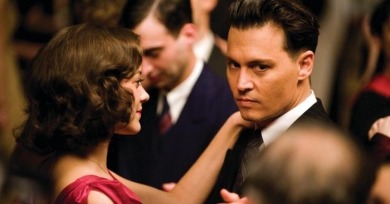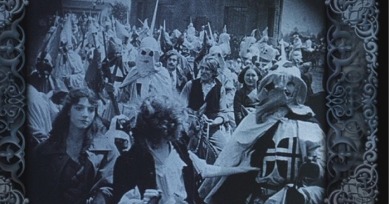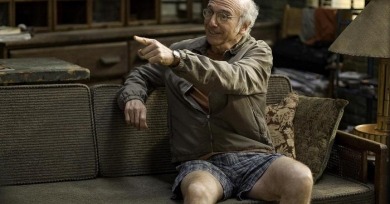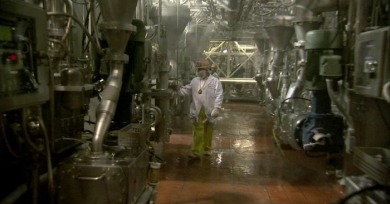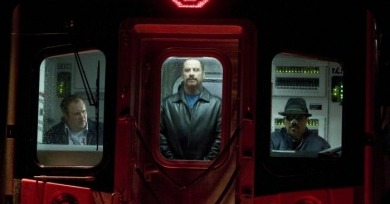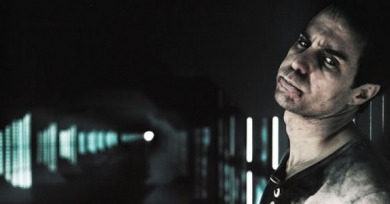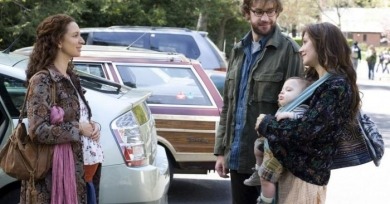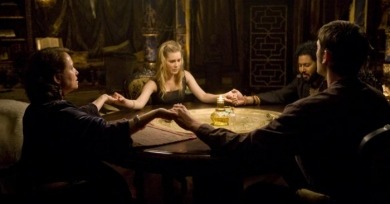Reviews
At first, the whiff of Kaurismäki and Jarmusch is undeniably pungent, but Eimbcke keeps peeling back his layers of detachment one by one, until something pure and plangent remains onscreen.
It is at best naïve, at worst wholly disingenuous, to evaluate the work of a commercial artist without weighing the commerce in equal proportion to the art.
Stephen Frears’s version of Colette’s novel Chéri, adapted by Christopher Hampton, is ostensibly an examination of an aging Michelle Pfeiffer.
The trouble with Quiet Chaos is that there’s too much quiet and not enough chaos. The emotional turmoil spoken about by the film’s characters rarely punctures its tranquil, sleepy surface.
The opening of The Hurt Locker is a textbook example of how to use images not only to impart information but to brand it on the brain.
What extraordinary journey have we taken from these blackface caricatures we’re seeing on the screen to this black man on the stage freely expressing himself to a crowd of college students?
Yes, Woody Allen’s fortieth feature, Whatever Works, is Just Like All the Rest. So what? That should take a critic of average intelligence about thirty seconds to ascertain, or less if you want to start with the white-on-black credit typography; there’s still a whole movie left.
Olch is lucky in that his subject was a talented filmmaker—instead of shaky, unfocused home video footage of the lowest quality, Rogers’s archives include some beautiful imagery.
Robert Kenner’s exposé on the American food industry begins with all the dystopian promise of David Lynch’s Blue Velvet, plunging us beneath the surface of a shiny, pristine supermarket with rolling camera movement, prophetic voiceover, and pulsing horror movie score.
When looking to lay the deserved blame for an abortion such as the new The Taking of Pelham 123, the names on the screen are most often not an answer but merely a clue.
Science-fiction filmmaking built from brains rather than balls is an increasing rarity; finding it hitting screens deep into June is a near impossibility.
Sex Positive is bracing in its honesty: towards the end of the film, a handful of the film’s interviewees admit to never having heard of Richard Berkowitz.
Scripted by literary-world darlings Dave Eggers and Vendela Vida, and sure to be dear to the hearts of easy-to-please reviewers in thrall to any middling drama bearing the Sam Mendes imprimatur, Away We Go is a defiantly bourgeois, unapologetically conventional indie road movie fueled by preciousness.
Certainly for the hordes of fans who have felt twinges of disappointment by his big-studio shenanigans in the past decade or so (regardless of his continued slavishness to his comic-book demographic), the very possibility of Raimi going back to his roots is a cause for salivation.

